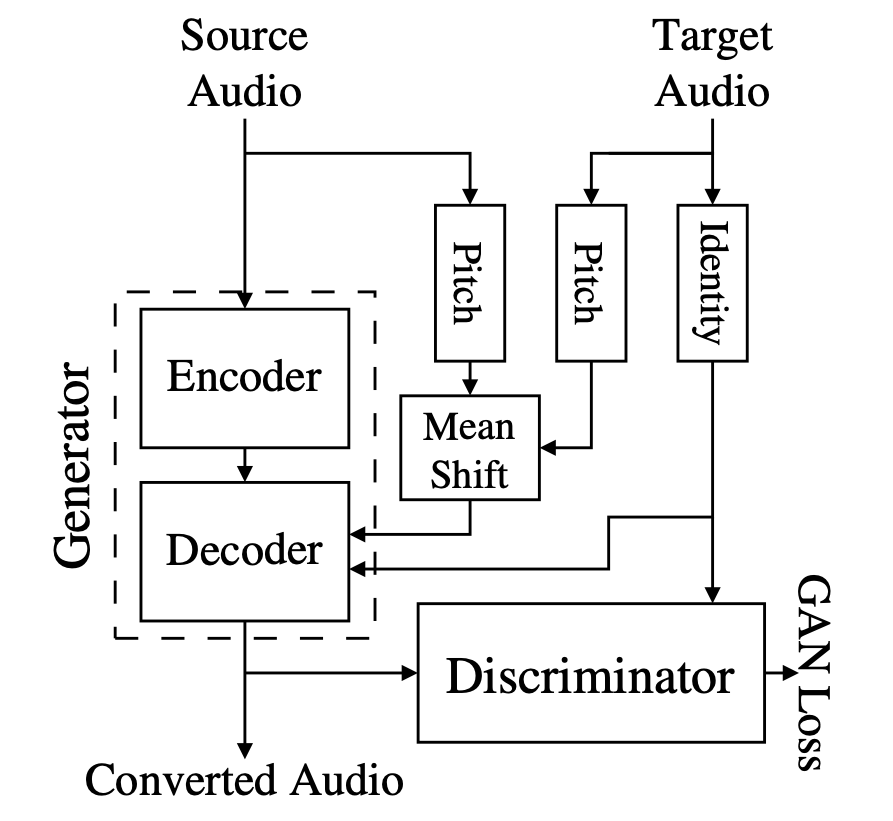A Pitch-Controlled End-to-End Voice Conversion System for Brazilian Portuguese
DOI:
https://doi.org/10.14209/jcis.2024.13Keywords:
Voice Conversion, Generative Adversarial NetworksAbstract
Speech conversion is a technique that modifies the identity of the voice in a speech signal without changing the spoken content. Accurate pitch conversion is a requirement the best speech conversion systems must address, as this characteristic is essential to the correct identification of the target speaker. This work proposes a pitch-controlled end-to-end voice conversion model that combines state-of-the-art ideas from both speaking and singing voice conversion with a novel cost function to ensure artifact-free pitch tracking. The model is trained in Brazilian Portuguese, overcoming the lack of high-quality data by improving a large but flawed dataset with filtering operation. Our model mostly outperforms other popular open source models in both listening tests and objective measurements. In particular, on a 5-point MOS, we obtained the highest speaker similarity score (4.05), and a naturalness score of 3.48, second only to a system whose similarity score was 2.62.
Downloads

Downloads
Published
How to Cite
Issue
Section
License
Copyright (c) 2024 Victor Pereira da Costa, Sergio Lima Netto, Luiz Wagner Pereira Biscainho, Ranniery Maia (Author)

This work is licensed under a Creative Commons Attribution 4.0 International License.
Authors who publish in this journal agree to the following terms:
- Authors retain copyright and grant the journal right of first publication with the work simultaneously licensed under a CC BY-NC 4.0 (Attribution-NonCommercial 4.0 International) that allows others to share the work with an acknowledgment of the work's authorship and initial publication in this journal.
- Authors can enter into separate, additional contractual arrangements for the non-exclusive distribution of the journal's published version of the work (e.g., post it to an institutional repository or publish it in a book), with an acknowledgment of its initial publication in this journal.
- Authors are permitted and encouraged to post their work online (e.g., in institutional repositories or on their website) before and during the submission process, as it can lead to productive exchanges, as well as earlier and greater citation of published work (See The Effect of Open Access).
___________
Accepted 2024-08-07
Published 2024-08-13


